Review of Crude Oil Prices: Will the Correction Continue in 2023?
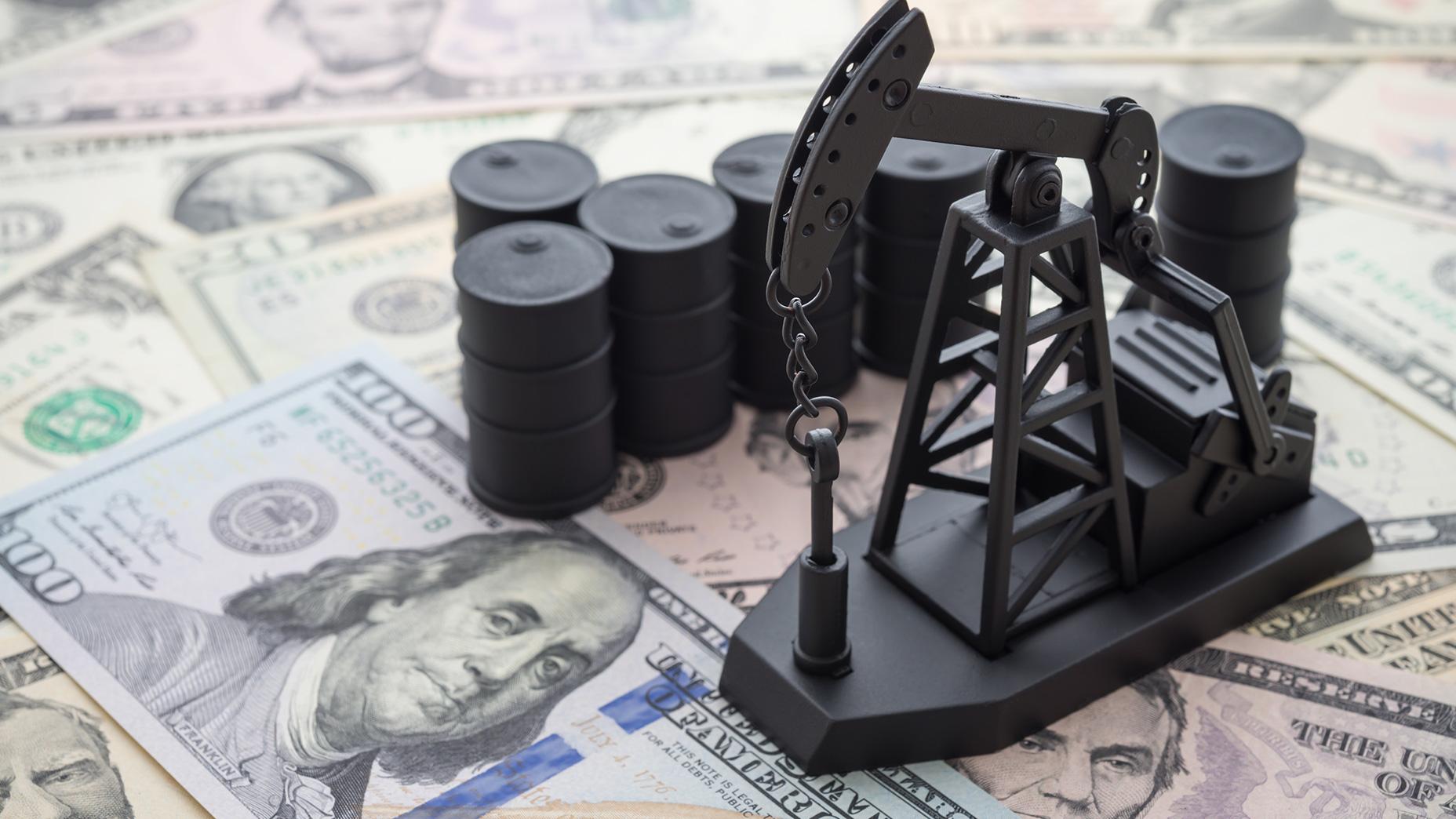
6 minutes for reading
Global oil prices are currently in a downward correction phase, having dropped significantly from their annual highs. At the time of writing, the price of Brent crude oil has fallen by more than 15% compared to its annual peak of 89.00 USD, which was recorded on 23 January. The price of WTI crude oil has also dropped by approximately 15% compared to the annual maximum value of 83.40 USD, which was reached on 12 April.
Today we will look at the main factors currently affecting oil price trends and analyse whether the correction will persist this year.
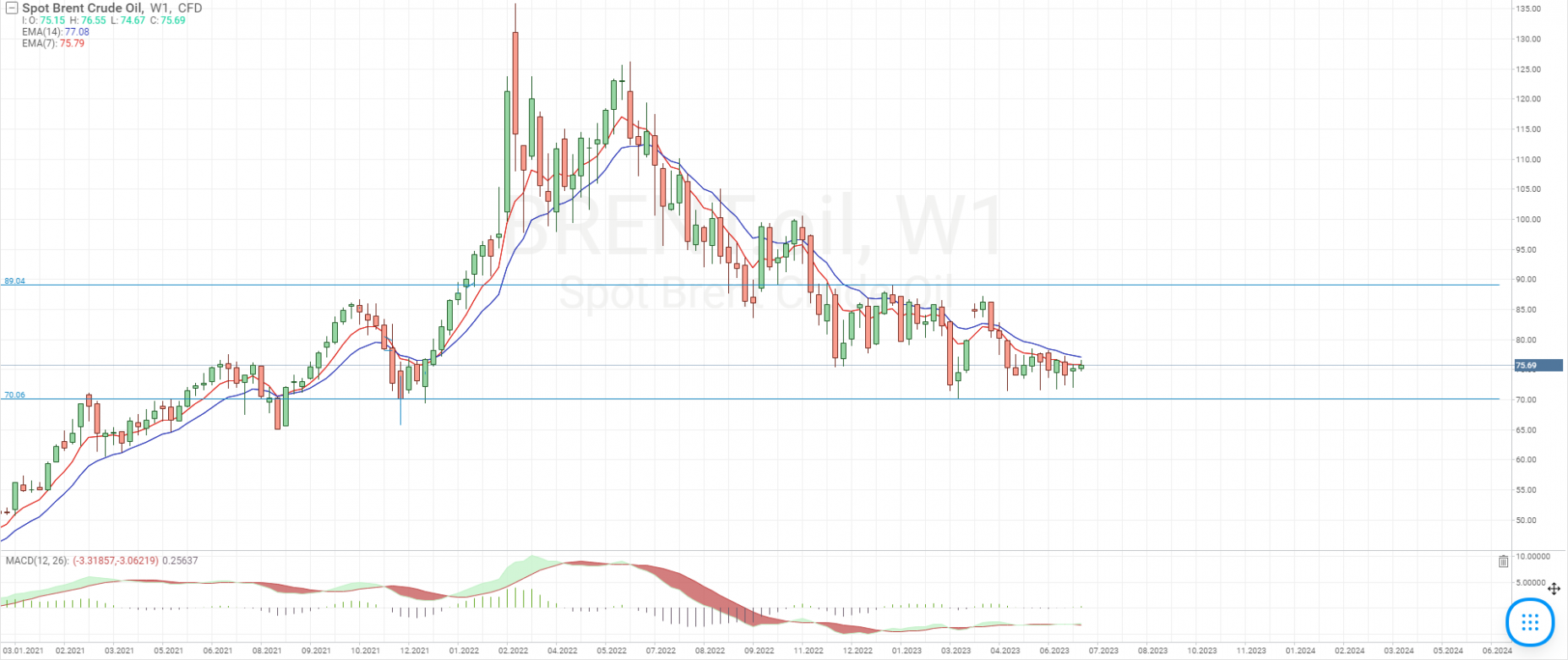
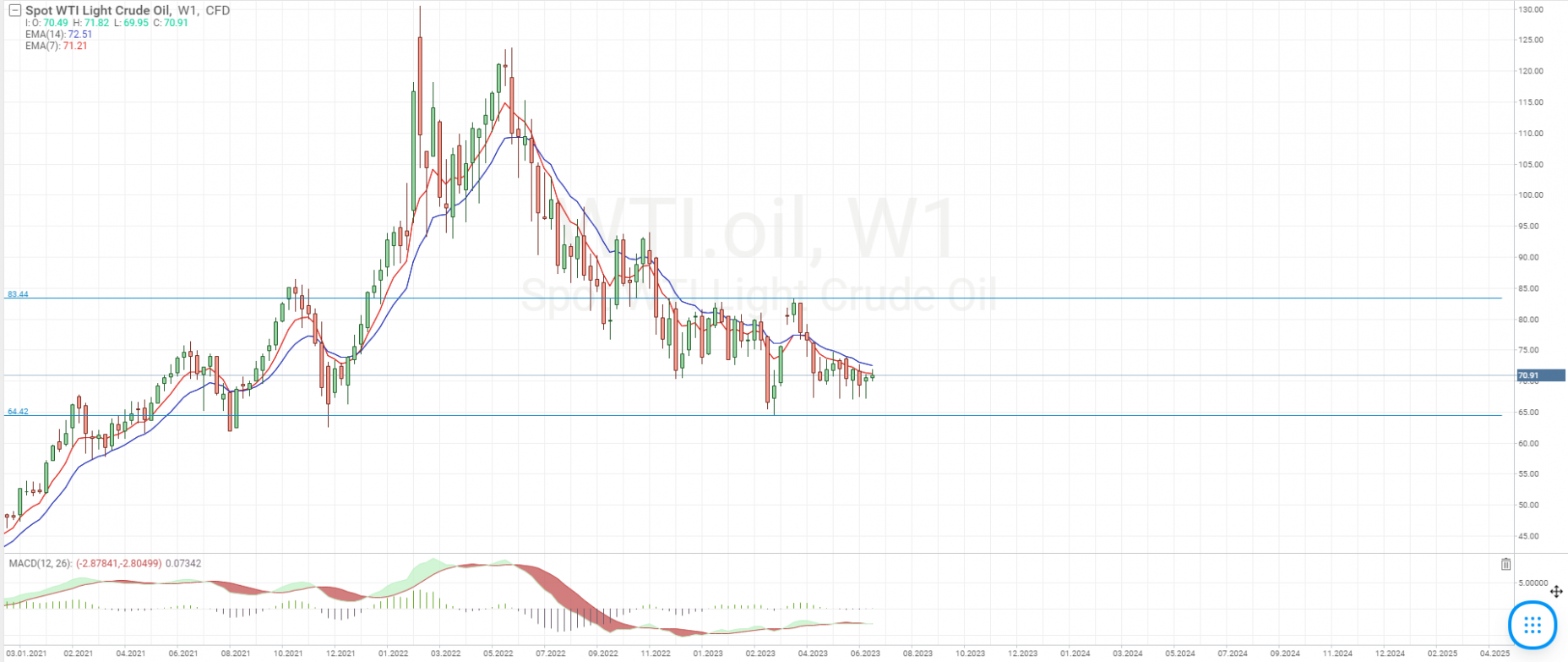
Fundamental factors affecting oil prices in 2023
OPEC+ policy
In early April, the Organisation of the Petroleum Exporting Countries OPEC+ unexpectedly decided to cut oil output by 1.6 million barrels per day (b/d). Amid concerns about a possible global recession, exporters seek to support oil prices by limiting supplies. As a result, oil quotes rose by more than 7%, but the subsequent downward correction offset this increase.
The OPEC+ alliance of 23 countries led by Saudi Arabia accounts for over 40% of global oil supplies. The 8th OPEC+ International Seminar will be held on 5-6 June with the participation of CEOs of oil companies and energy ministers of the member countries. At the last cartel meeting, the Saudi minister announced further oil production cuts by 1 million b/d starting from July, of which the market is awaiting confirmation.
OPEC+ is committed to support oil quotes. At the June meeting, member countries agreed to reduce oil production within the organisation by 1.4 million b/d to 40.46 million b/d from 1 January to 31 December 2024. Therefore, public statements at the upcoming seminar and confirmation of the plans to reduce oil output could provide another momentum for an increase in oil prices.
Data from the EIA
The Energy Information Administration (EIA) expects global oil demand to increase by 1.59 million b/d to 101.01 million b/d in 2023 and by 1.7 million b/d to 102.71 million b/d next year. Global oil output is projected to increase by 1.52 million b/d to 101.37 million b/d in 2023 and 1.32 million b/d to 102.69 million b/d in 2024. According to EIA estimates, oil production rates in the world will slightly surpass consumption rates by the end of this year, but the market will face a small deficit in 2024.
Sanctions on Russian oil
Sanctions affecting Russian oil are a significant factor in the oil market. The EU ban on maritime imports of Russian crude oil came into effect in December 2022 with a price ceiling of 60 USD per barrel. An embargo on petroleum products was introduced in February 2023. The EU and partner countries have also prohibited maritime services for the delivery of Russian petroleum products and crude oil, except when purchased at the established price or below.
In response, Russia redirected its trade to Asian and African countries and announced oil production cuts by 0.5 million b/d since March 2023, which is nearly 0.5% of the total global supply of crude oil. Economists from the European Central Bank say that the embargo on petroleum products from Russia could trigger an increase in the prices of crude oil.
The slowdown in the US and global economic growth
The hawkish stance of the Federal Reserve System (Fed) and the possibility of further interest rate hikes this year might exert additional pressure on the US economy. High inflation and slowing economic growth, along with concerns about the stability of the banking sector and the risks of US debt default, are the drivers for the decrease in oil prices.
According to International Monetary Fund (IMF) forecasts, global economic growth will reach a minimum value of 2.8% this year. Global inflation will decrease more slowly than expected – to 7% by the end of the year. The war in Ukraine, high inflation, and tightening of monetary policies by central banks in many countries are putting pressure on the global economy, resulting in a decrease in business activity and reduced demand for oil.
Analytical oil price forecasts for 2023
- HSBC analysts expect the cost of a barrel of Brent crude oil to reach 93.5 USD in the second half of 2023. They point out negative macroeconomic factors that could mitigate the effect of output cuts by OPEC+ countries
- Credit rating agency Fitch Ratings projects that by the end of the year, the price of a barrel of Brent crude oil will be around 80 USD, and WTI will be around 75 USD. The agency points to low short-term demand and a possible slowdown in global economic growth
- UBS Bank expects that by the end of the year, Brent crude oil will cost 95 USD per barrel and a deficit in the market will exceed 2 million b/d. In addition, there will be a serious deficit in 2024 when overall oil production cuts as part of the OPEC+ deal take effect
- The EIA estimates in its short-term forecast the price of Brent will amount to approximately 79 USD per barrel in 2023
Technical analysis of oil prices in 2023
Brent crude oil reached a strong support area at 70-71.5 USD during a downward correction on the daily chart on 4 May. The decline has halted, and at the time of writing, quotes are consolidating within the sideways range, with the lower boundary at 71.5 USD and the upper one at 78.5 USD. In addition, a Triangle pattern has formed on the daily chart. If the quotes break above the upper boundary of the pattern, they are expected to move towards local highs of around 89 USD. If the price drops below the lower boundary of the pattern, a test of the strong support level at 70 USD is likely. If this level is achieved, the quotes could fall to the range of 60-65 USD per barrel.
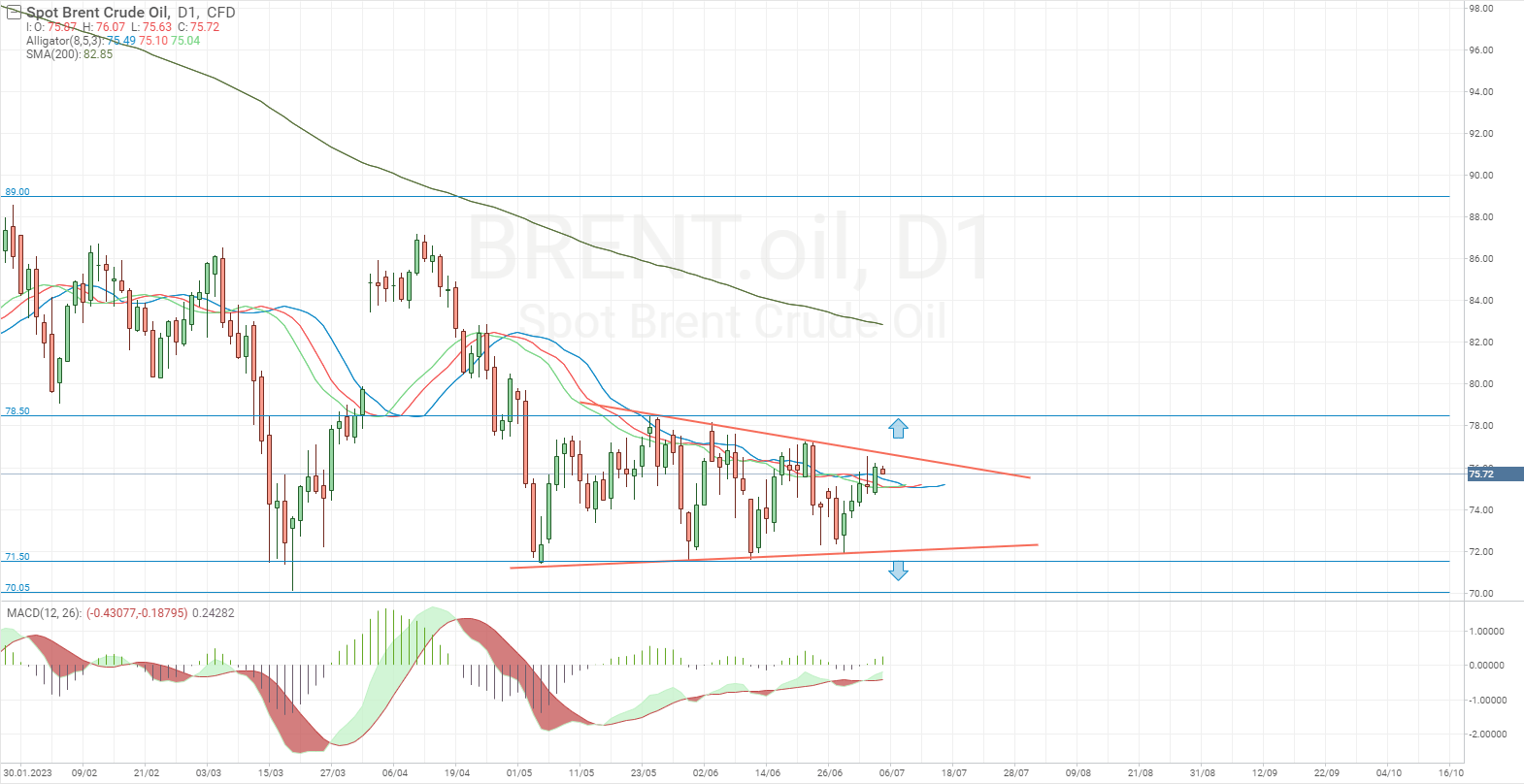
The situation with WTI oil prices is almost identical. They have found strong support at 67 USD, which has repeatedly held back attempts to continue the downward correction. The upper boundary of the daily sideways range is at the level of 74.5 USD. A Triangle pattern has also formed on the chart. With an exit from the range upwards, the quotes will have prospects for growth, while an exit downwards will indicate a possible continuation of the downward correction.
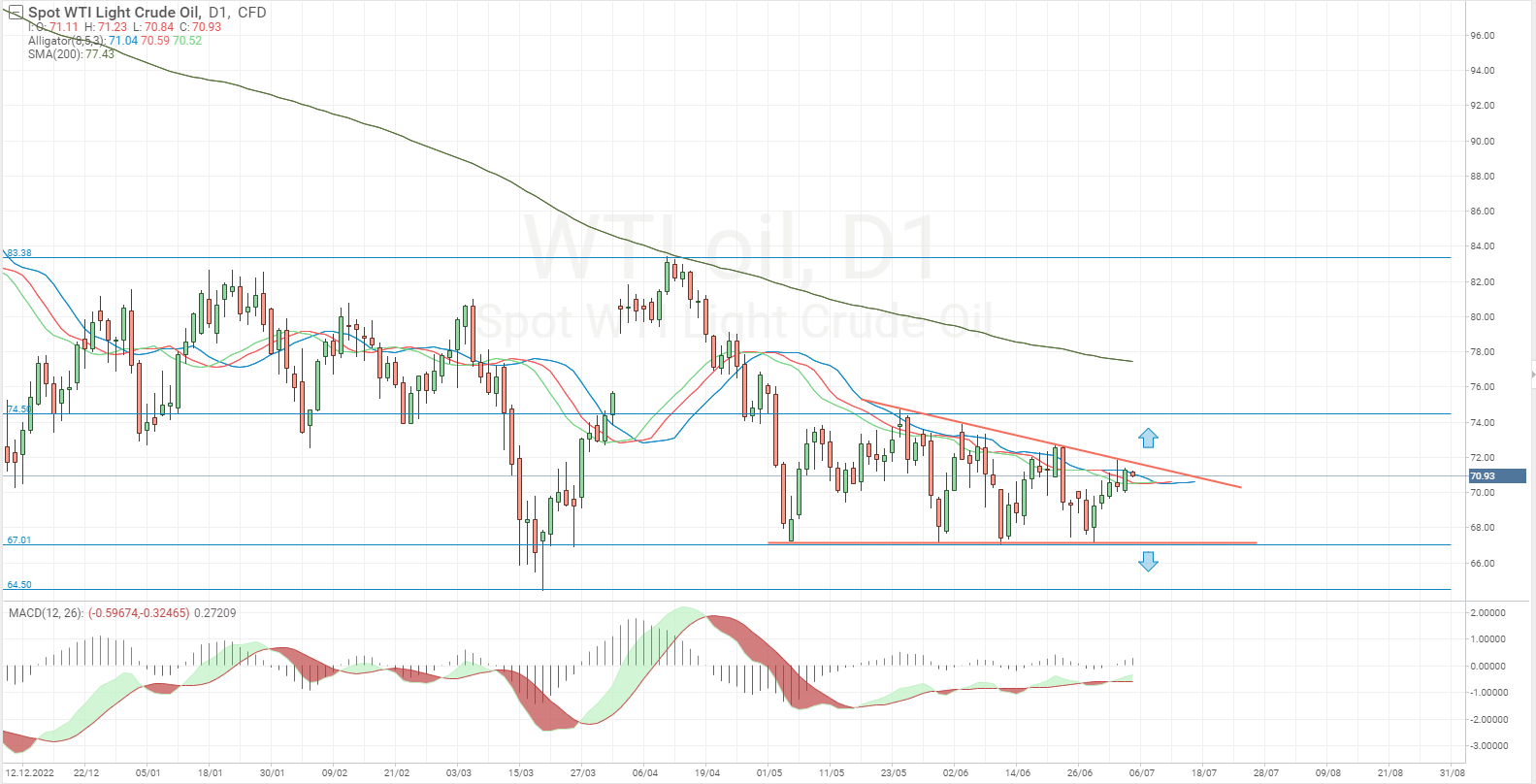
Summary
Fundamental factors currently have both a positive and negative impact on the price of oil, which has been in a downward correction since 2022. However, prices have now found significant support thanks to the actions of OPEC+, and the decline has halted. The cartel strongly influences oil price formation to prevent further declines.
If OPEC+ policy remains unchanged and the organisation continues to support oil prices by reducing output levels, the downward correction could come to an end, and an increase in prices could follow. According to analytical forecasts, Brent oil prices will range from 80 to 90 USD per barrel by the end of the year. A strong risk factor is the economic situation in the US. If it shows signs of an emerging recession, oil prices could come under pressure again and return to this year’s lows.







